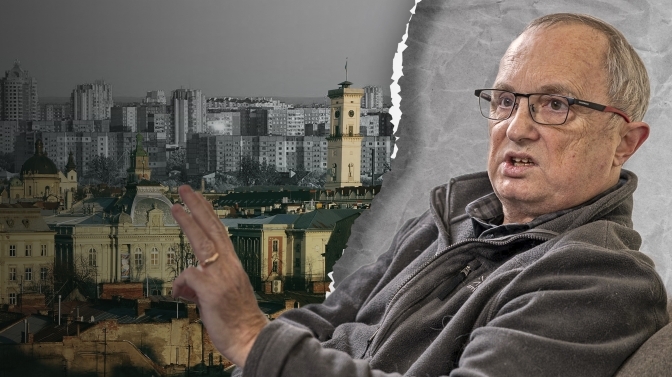
photo collage by Dmytro Taradayka, tvoe misto
[For daily insights from throughout Ukraine, follow Ukrainian Freedom News on Telegram]
Philip Shukhevych is the third cousin of the recently deceased Hero of Ukraine, dissident and politician Yurii Shukhevych. Now, he is the last of the Shukhevych lineage in Ukraine, famous for its ancestor Roman Shukhevych – a general of the Ukrainian Insurgent Army which fought for independent Ukraine against both Nazis and Soviets during the Second World War.
Philip Shukhevych was born in Brussels and is a citizen of Belgium. The engineer and urban planning expert, he does not have a Ukrainian passport, but considers himself a Lviv resident. He has lived in the city for the 13th year, and in general, has spent over 31 years in Ukraine.
Shukhevych had studied urban planning and infrastructure in Belgium and at Columbia University, designed highway bridges and intersections in New York. He dealt with energy issues, extensively researched urban planning and water supply systems in Algeria. He says he would also benefit Lviv, but he struggles with promoting his engineering ideas here. Lviv Now spoke with Philip Shukhevych about his lineage and his view of Lviv: what the city lacks, and how it could be fixed.
Please, tell us about yourself, how did you end up in Lviv?
I received my first Ukrainian visa in January 1992. The companies I worked for were international, and all of them specialized in energy-efficient technologies. I started with setting up and opening their branches here. At that time, all the best engineers paid little interest to government structures, so I lured them all to me and got my own super-elite team. At first, we made demonstration objects for the American European Community Association (AECA), supplied the equipment and installed it.
As a person with the surname Shukhevych, it was difficult for me to start earning here. Those who sold bananas, chocolate, and cigarettes mostly succeeded in earning. I worked with static valves for radiators, household- and gas meters. It was in Ukraine that we started producing the meters which allowed to save gas consumption by 30 per cent.
In Ukraine, I offered various ideas on how to save energy. I had the opportunity to travel to Brussels and establish contacts with suppliers.
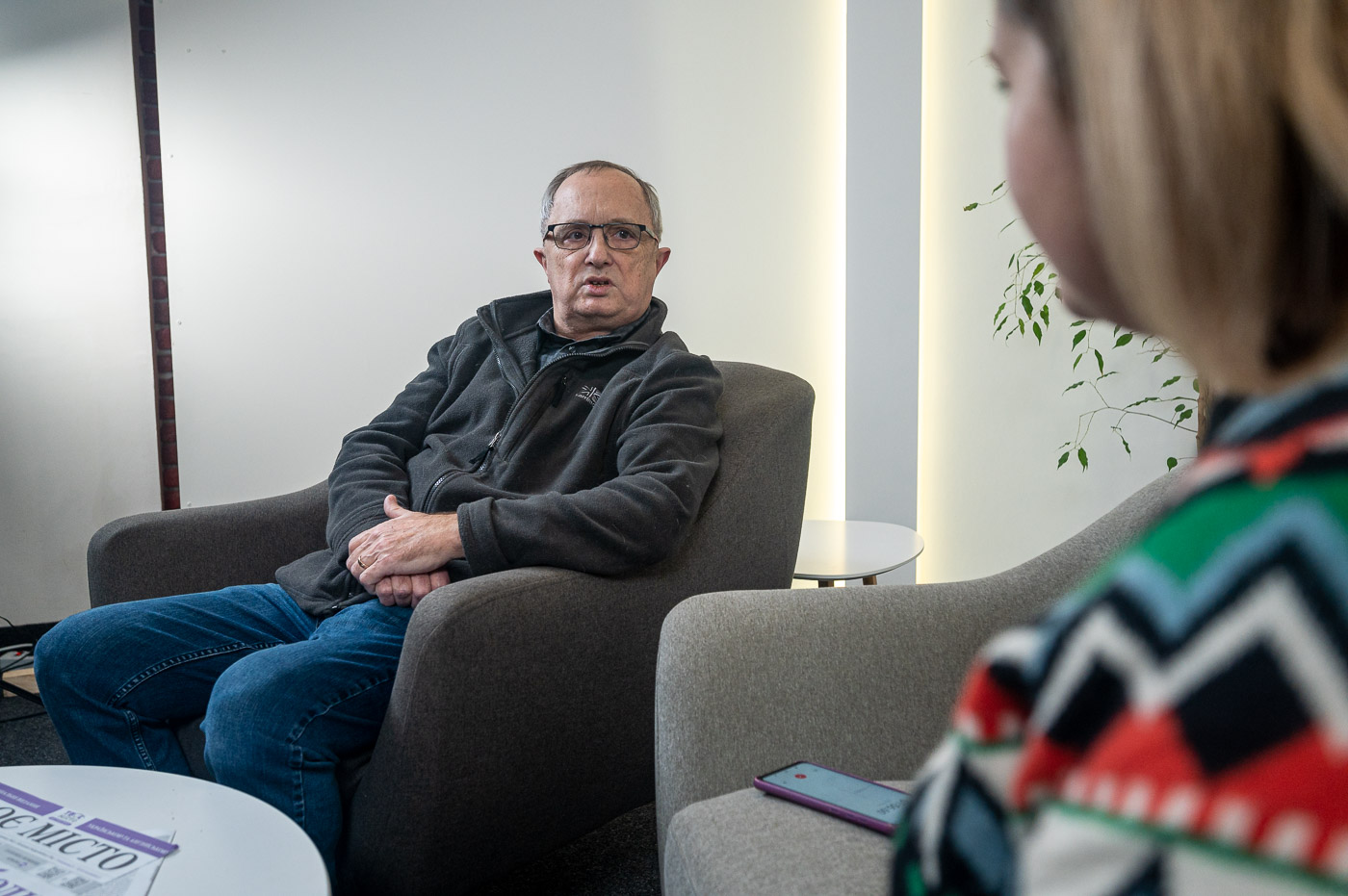
Our first major object was the Hall of the President of Ukraine, which we had to modernize to make it adhere to global standards. In the conference halls, we installed systems for translations, voting, conference systems, as well as cameras, air conditioning, heating, and ventilation. Over time, the number of customers increased, and we began to supply equipment for large administrations – «Ukrnafta» oil company, one of the banks. For two years, we also worked on the reconstruction of the Philip Morris Ukraine plant in the Kharkiv region. And if initially, the volume of cigarette production was at the level of 2.5 billion, we ended up with the volume of 25 billion cigarettes per year. We also implemented a project with the World Bank to restore the network of heating plants in Kyiv.
Life and work were concentrated mainly in Kyiv. When I became interested in moving to Lviv, my surrounding started rejecting me. But my relatives wanted me to move.
In Lviv, I worked on a project at the «Svitoch» [chocolate manufacturing company]. I was engaged in the supply and installation of energy systems, made economic and technical justifications, and prescribed a strategy. I helped Ukraine consume less gas.
What have you been doing in Lviv in recent years?
Few things. I helped Western companies that offered effective technologies in heavy industry (power plants, oil refineries, mines, metallurgical plants). During the war, I managed to help my acquaintance establish a program for obtaining army trucks for the Ukrainian military. I also agreed with my Belgian colleagues to supply glass to Ukraine and install it. Still, I cannot say for sure what the results of the first and second projects were and how much of it was actually transported.
I proposed a project called «energy bridge to Europe». Several units of the Rivne and Khmelnytskyi Nuclear Power Plants could be connected to Europe. In the Lviv region, there is a small premise with a high-voltage line. With a capacity of 3000 MW each, they are among the most powerful in the world. I spent five years trying to find out what it was. There were no documents in the Ministry of Energy. As it turned out, these premises were once connected to the Ukrainian nuclear plants in Rivne and Khmelnytskyi, and on the other side – to Poland and Europe. The Soviet Union planned to export nuclear electricity to Eastern Europe. Everyone has already forgotten that such lines exist. During one panel discussion about energy security in Ukrane, organized by the US Department of Energy Office in Kyiv (DOE-Kyiv), I proposed to connect several units of the nuclear plant to Europe and restore the operation of the transmission line. The connection of one block could bring Ukraine from 500 million to 1 billion dollars. But the current Ukrainian government refused this project.
Now, little by little, I write scientific articles. With knowledge of quantum physics, I understand how to create new types of green energy.
After the victory of Ukraine, when billions of investments will be available and the reconstruction will continue, these schemes can be restored. The lines can be proposed for restoration once again, and Ukrainian electricity can be connected and exported. Before the end of the war, we can start preparing these objects accordingly.
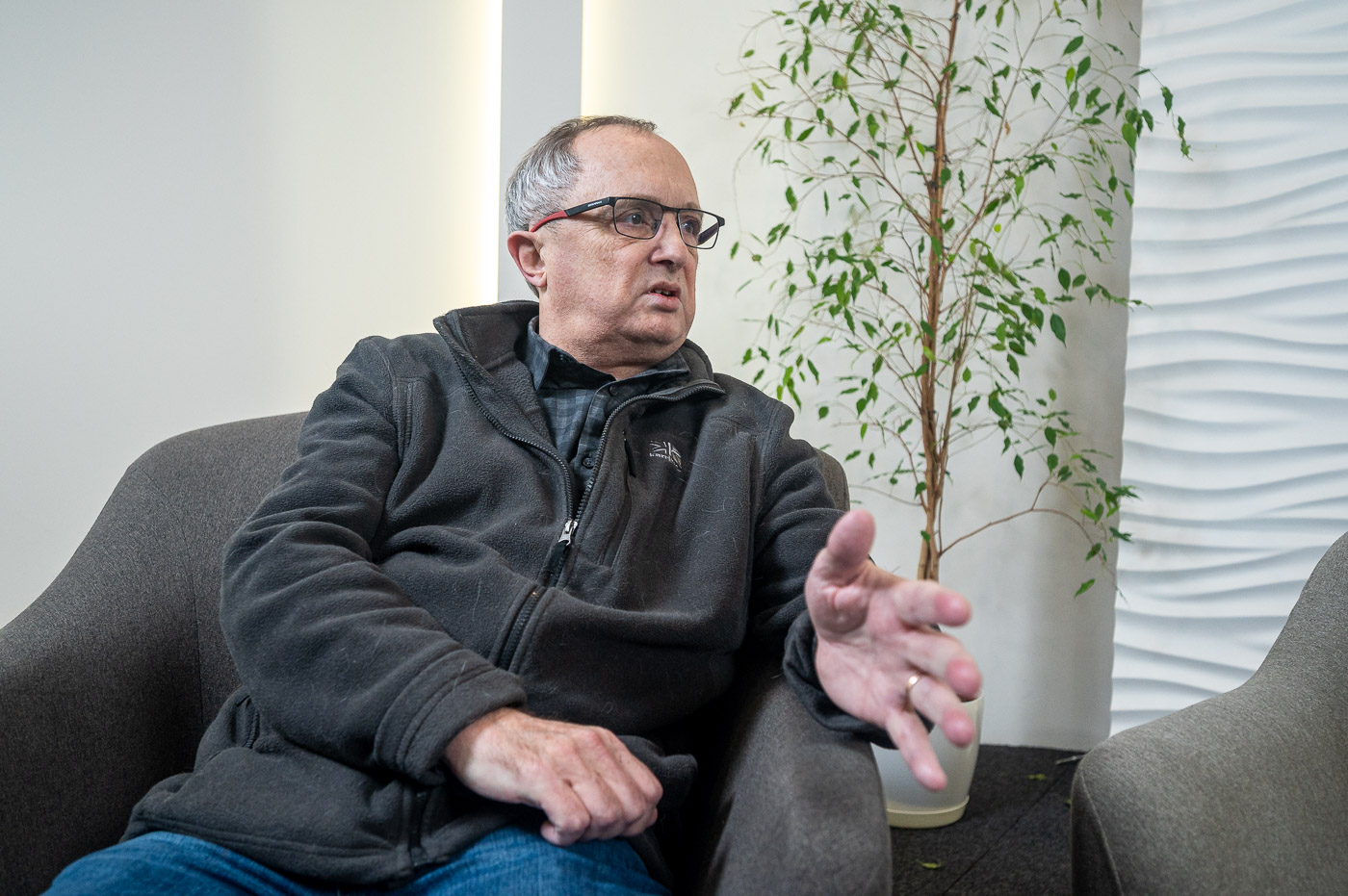
So it seems that you have something to do in the Lviv region?
I want it, but others don’t. I often offer projects, but no one is interested in them. Everyone needs ready-made schemes.
In recent years, you have been living in Lviv. Will you stay here or plan to return?
In Ukraine, I am the last of the Shukhevych lineage [there is also Maria, a sister of recently deceased dissident Yurii Shukhevych, but her last name is Tryliovska, – ed.] A patriarch, one can say. There are several more distant relatives, but they are not in Ukraine: in Australia, Canada, Belgium, and France. In fact, it’s not known whether the last of the Shukhevychs will stay here. I have a few specific projects to offer, but everything is on hold for now. Everything is also unclear with work... I will go to work only where I will do something specific. Recently, I was offered to become a scientist in one laboratory and work on new types of clean energy, so I am waiting for specific offers.
In Europe, my ideas are appreciated more, so if everything works out, I will move. I feel like Don Quixote, who struggles, but to no avail.
How big is your family outside of Ukraine and what do the Shukhevychs do in general?
Everyone knows about Roman and Yurii Shukhevich, but in fact, our family is much bigger, and it started from the time of the Zaporizhzhya Sich. One Cossack had three sons: Shukh, Shukhovskyi, and Shukhevych.
The first Shukhevych was a priest and settled in the village of Tyshkivtsi in the Ivano-Frankivsk region. In several successive generations, there were priests who had 13 children each.
My grandfather is also an unusual person: during the war, he was a battalion commander in the Austrian army and was awarded the Green Cross from Austria. After the war, he became one of the commandants of the Sich Riflemen, and for some time, he was even the military governor of the Odesa region. As a lawyer, he later saved Roman Shukhevych from the death penalty.
The current Shukhevychs, who are more or less related to the family, also do a lot for Ukraine, even while living abroad. For instance, the general’s daughter designed water supply schemes at «Lvivvodokanal» [water supply municipal company in Lviv]. Myroslav Havrylov is engaged in the improvement of road construction. His daughters are activists engaged in the preservation and reconstruction of architectural monuments in the Lviv region. Another family member was one of the first to develop cable TV networks in Lviv. Among us, there are musicians, actors, athletes, those who lay cables and networks, and I work in the field of energy.
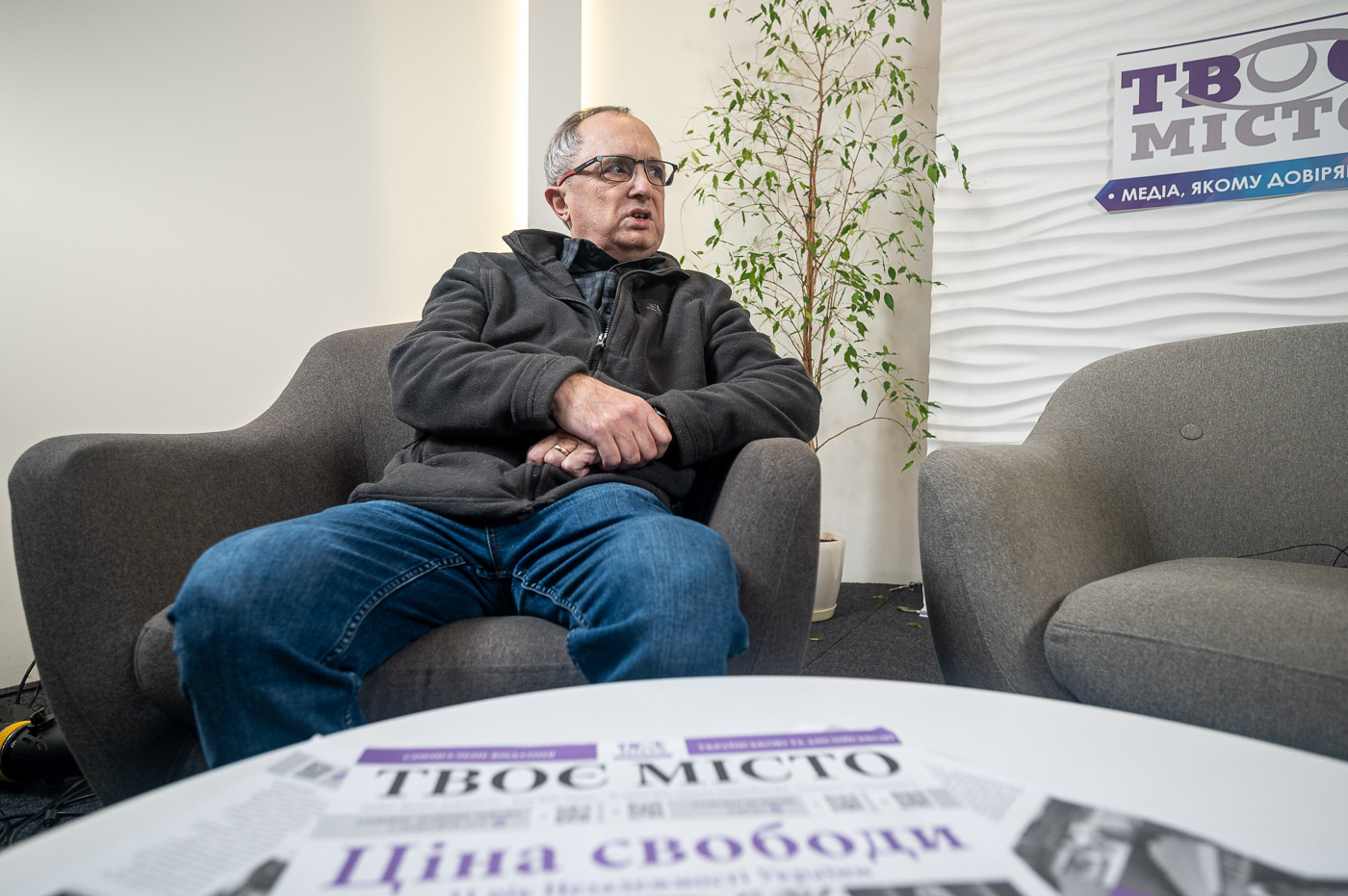
Undoubtedly, all the Shukhevychs are extraordinary people, all of them possess a steel character. They often call and meet each other.
My brother is now in Guyana, which is in the jungles of northeastern South America. Nata Shukhevych is the daughter of the second brother and a mother of four children. She works in biotechnology and lives in Malawi, which is in the southeast of Africa. She arranged the transfer of humanitarian aid to Ukrainians who suffered in the war.
It is important to me that people know about the various Shukhevychs, about how much they did for Ukraine.
Do you see positive changes in Lviv that have taken place in recent years?
I studied urban planning a lot, I lived in the pedestrian city of Louvain-la-Neuve for a while, and I know specifically what can be improved here: how to organize traffic in the city, where to skip and where to put signs, how to regulate traffic lights, where pedestrian crossings should be, and where the public transport stops are. But my advice is rarely heeded.
Read also: Public forum: the routes to become short and straight. City’s plan to improve mobility
They don’t listen to you because of having their own traffic organization schemes, or is there something else?
I know why, but I won’t say it out loud. Probably, because they don’t think about people...
Each of us is a pedestrian, but not everyone is a driver. What is the focus in Lviv?
You can do both. In a pedestrian city, everyone can also have a car that will be parked near the house in case, for example, it is necessary to take a child to the hospital. But this does not mean that it should be used for shopping or somewhere else. It is necessary to make it easier for people to get there on foot, rather than pulling the car out of the garage every time.
Did you come or drive to talk to us?
I came because I live in the center of Lviv. Some of the residents at one time said that they could no longer live in the center. Therefore, some bought mansions outside the city, and others moved to apartments in new buildings. But over time, many returned because they realized that it was even worse elsewhere. For example, there is no school, kindergarten, or commercial activity near the new buildings.
In Lviv, everything is concentrated in the center. Because of this, the city, especially its central part, may explode. Lviv is already having a heart attack.
And what do you see as a way out?
The money that will come after the victory from international organizations shouldn’t be directed to something small, but rather invested in capital infrastructure. It is already necessary to think about large infrastructure projects, in particular, how to improve mobility between districts.
In the city, not everything should be concentrated in the center. Districts of the city must be autonomous and efficient, to live their own lives. However, now communication between them is difficult, everyone drives through the center, so it is crowded with traffic. For example, several large business centers can be created in Sykhiv so that people can stay there and work instead of commuting across the city. Only once or twice a week would they come to the center to drink coffee or beer.
Why not stop the movement of freight trains on the tracks of Pidzamche, Pid Dubom, and convert the infrastructure into a large city highway? Now, coal from the Chervonohrad mines, and dangerous goods such as benzene are transported through the city. This is explosive! Does such freight transport really need to transit through the historic city? For this, there are alternative lines around Lviv – through Malekhiv, Rava-Ruska, or Khodoriv.
Traffic in the center of Lviv is very complicated because the railway tracks cut the city into almost isolated quarters. Lviv needs new bridges to cross tracks and roads, and then a significant number of cars will be able to bypass the city center, because it will be possible to drive directly from Khmelnytskoho or Shevchenka streets.
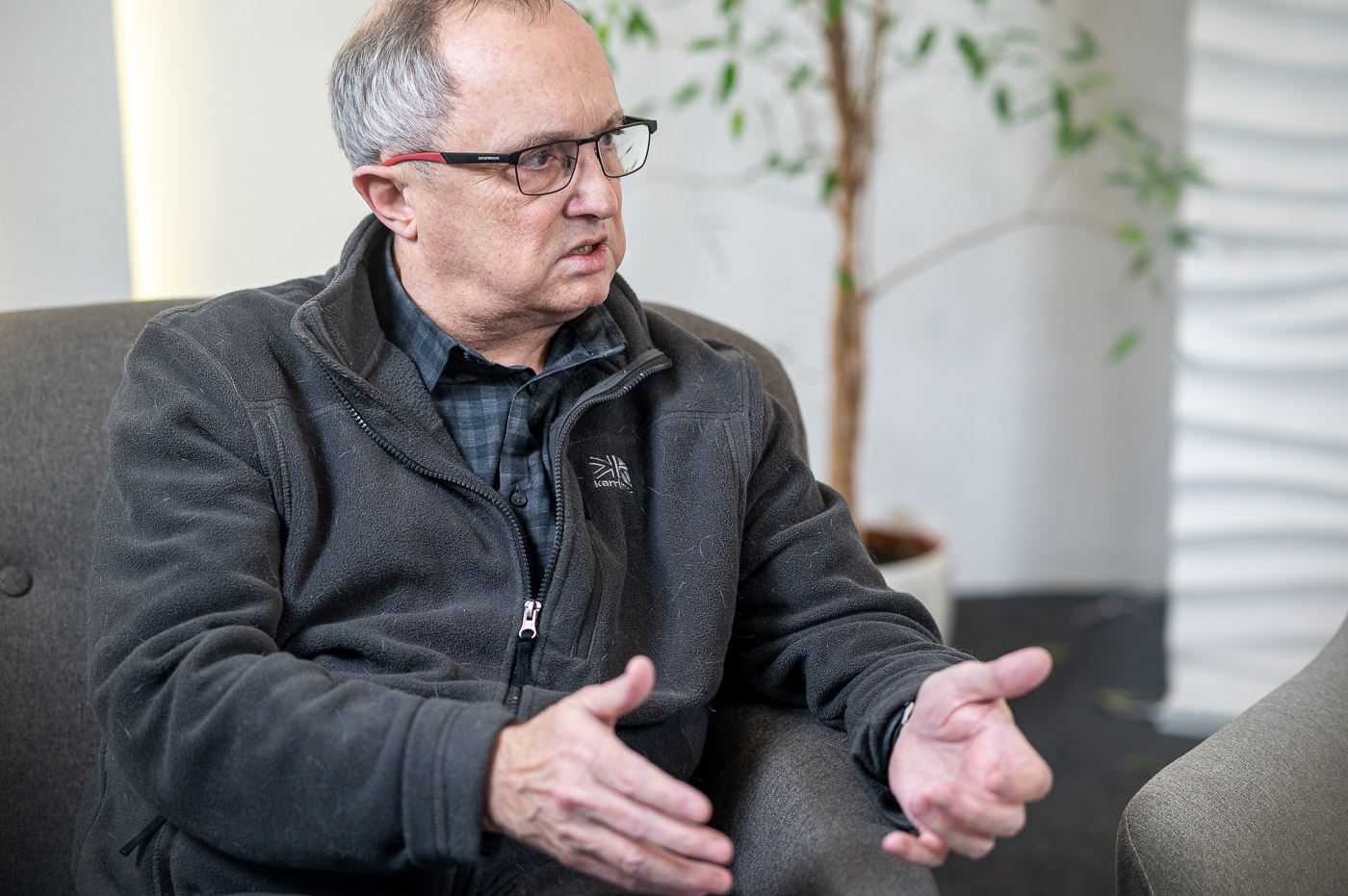
In most cities, which have approximately the same area as Lviv, a system of high-speed regional trains is organized for the transportation of passengers. Lviv railway must prepare for this new demand.
What do you think Lviv residents lack for convenience and comfort?
Security. The first thing to do is to start thinking about people. The second is to adhere to technology during the reconstruction of roads and highways.
You came to Lviv 13 years ago. Compare its comfort then and now.
Earlier, there was a bigger traffic collapse. Now authorities are trying to do something in the city, but cars stand in their way. It’s normal that everyone wants to own a car because it’s convenient. A pedestrianized city or even a pedestrianized neighborhood cannot be successful without cars, parking lots, and proper infrastructure. Therefore, everything should be designed in Lviv in such a way that the balance is preserved.
What city’s experience do you think Lviv should adopt?
I have already paid attention to the Belgian city of Louvain-la-Neuve. There are no cars on almost its entire territory: children can play freely on the street, there is no need to escort them to school. Many retirees have settled in it, because they are not afraid to walk in pedestrian areas where there are many shops. Students can also walk from the residence to the classrooms. But at the same time, all kinds of trade are developing in the city, there are cinemas, a theater, conference halls, restaurants, etc. So people don’t really feel the need to go outside of it, but they really appreciate being able to go down a few floors at any time, take their car and drive out of town.
Louvain-la-Neuve, where everyone walks, does not need public transport. It has only one bus service that provides access to the neighboring city, as well as rail transport, which makes it possible to easily get to work in Brussels. It is very similar to the Ukrainian electric train, but with clean modern carriages.
They even organized proper garbage collection there: big garbage trucks do not come to the center, waking up residents at five in the morning because of the workers’ shout and loud knocking while throwing out garbage. There is a garbage dump, but no complaints from the residents, because it does not bother them. Do you know why? Because there are no consequences, smells, or noise. Garbage is burned and electricity is produced. Why don’t we adopt it?
Can you name the district in Lviv with the best infrastructure?
Probably, no. There are problems in all districts. For example, the apartment that I recently bought in one of the districts, because I didn’t want to live in the center anymore, is beautiful, insulated, with triple-glazed windows. But my wife did not want to move there. First of all, it is difficult to get to work from there. There are also few shops and cafes nearby. We tried to rent this apartment. At first, people like it, but when they find out that there is no school nearby, and parking is inadequate, they refuse.
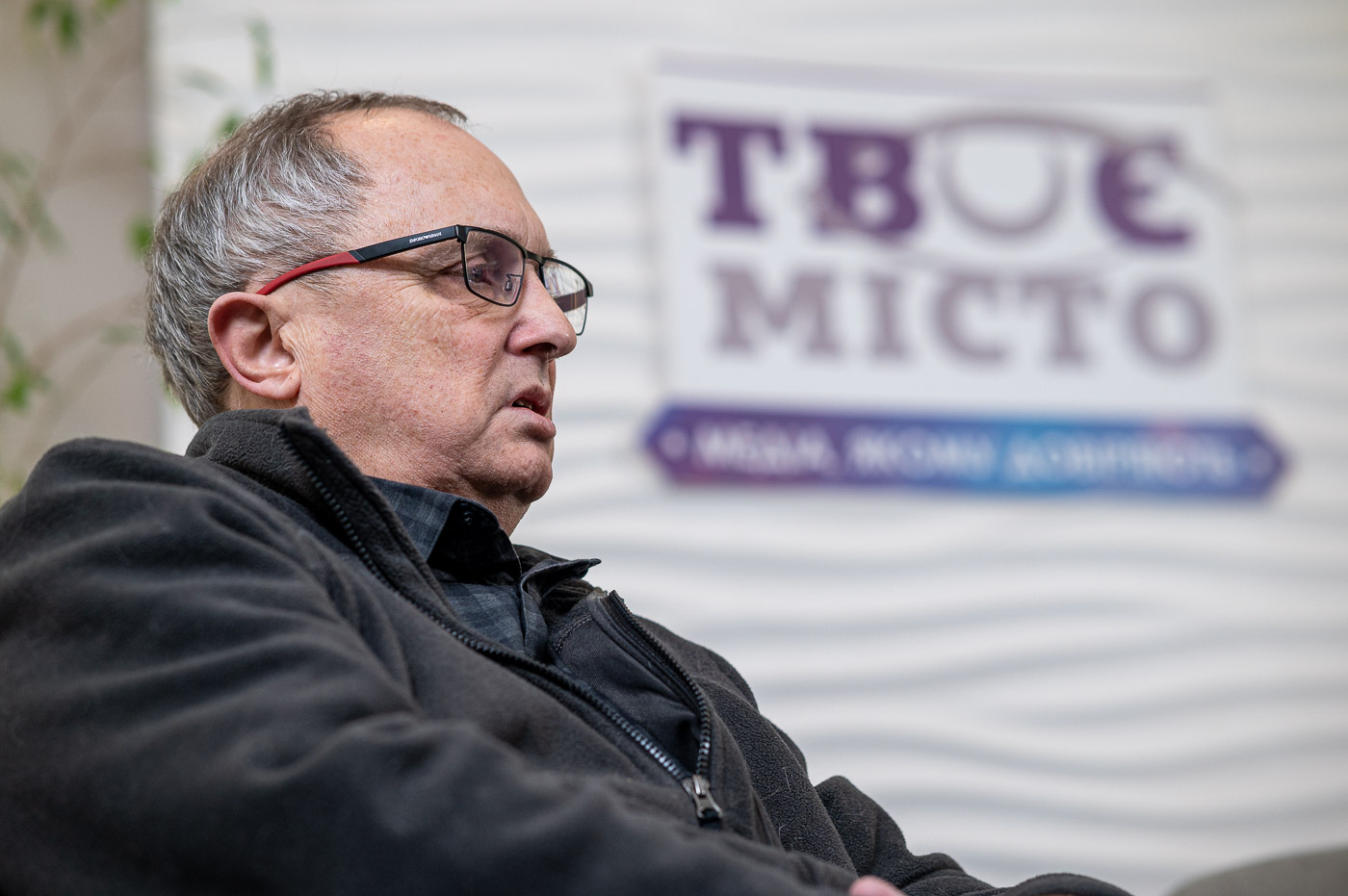
And is there any object, building, street that inspires you as an engineer?
This should also be seriously considered. Probably not. Unfortunately. Unless houses. The build quality is now better, and that’s an advantage. But there are many facilities that displace infrastructure in the city. Every meter is built up.
You have worked in Kyiv for some time. What is the situation there compared to Lviv?
Not better. I’m sad there. In Kyiv, they worked a little on capital infrastructure, extended the subway lines, but the asphalt on Khreshchatyk remains from the 1920s...
Lviv residents can influence the improvement of the street network, installation of signs in their city. Please, assess how they behave, and whether they want to change.
The people of Lviv do not understand how it is different, because they have always lived this way. Therefore, I hardly expect a reaction from them. After all, people don’t have time to do anything else. In total, they spend at least two hours on the road to get to work and return home.
Citizens should apply to various authorities, but they are unlikely to be heard there. If I’m not heard, being an expert in the field, then average people should not expect it either. The situation is a little better in the Sykhiv district. There, the townspeople pay almost the most attention.
Is Sykhiv so promising?
There is room for development in Sykhiv. With many residential buildings, this is a purely sleeping area. But this is a typical example of how it should not have been done, because people are forced to go to the city center every day. Ideally, they should stay there and work or go to other areas, bypassing the center. To do this, the city can make a railway interchange – from Pasichna street to Sykhiv all the way to the main railway station. This road should connect housing, business centers, and sports grounds in different districts.
We started the conversation with your possible move. Now it is clear that everything will depend on the situation and job offers. But if you do go and come back, what would you like to see first of all, what changes?
First of all, the restoration of power transmission lines connecting Ukraine with Europe. And also the railway track along Pasichna and Sykhiv. From that, the district could become super large. The city already has old Lviv, there is New Lviv, and this may become the new New Lviv.
Olha Shveda, translated by Vitalii Holich
Photo by Ivan Stanislavskyi
Full or partial republication of the text without the written consent of the editors is prohibited and considered a violation of copyright.
Follow us on Facebook and Instagram. Lviv Now is an English-language website for Lviv, Ukraine’s «tech-friendly cultural hub.» It is produced by Tvoe Misto («Your City») media-hub, which also hosts regular problem-solving public forums to benefit the city and its people.






